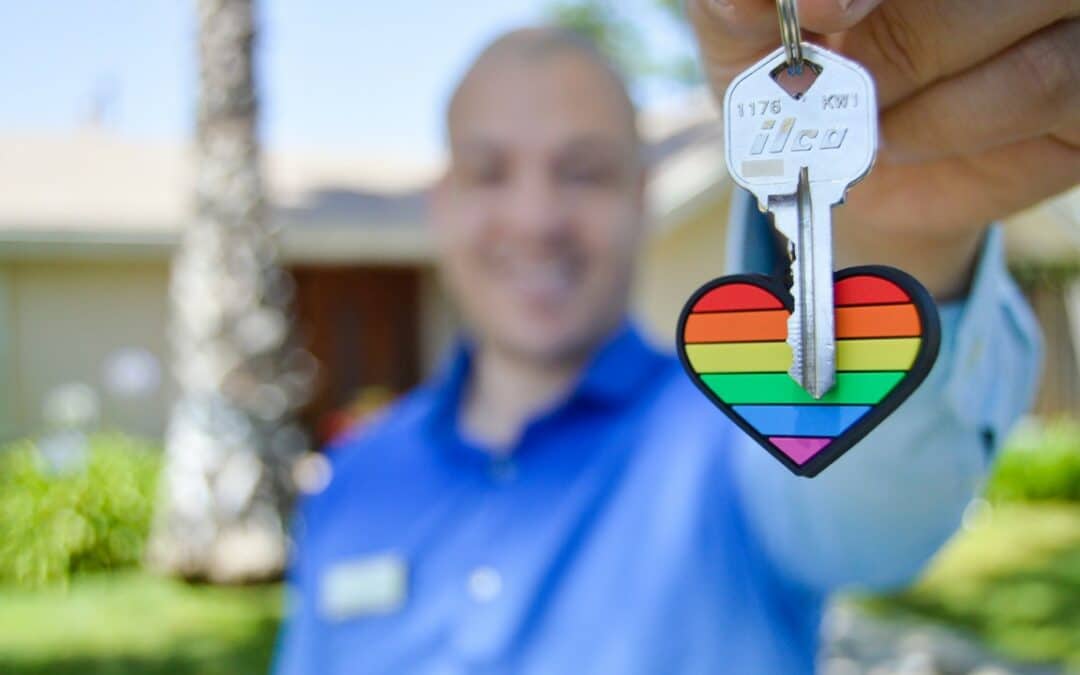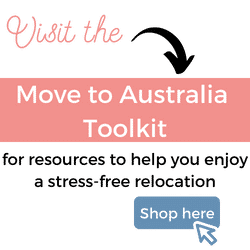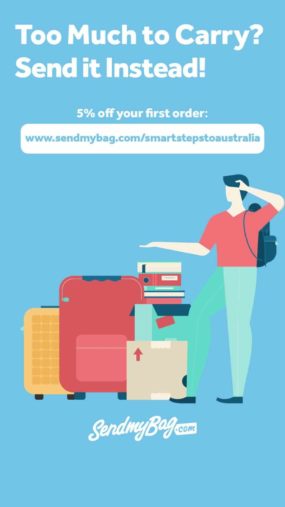Planning your move to Australia? Check out the services in the Move to Australia Directory!
I recently asked my readers what content they’d like me to create, and I received a few messages from people who are ready to move to Australia asking about the challenging rental market and if I had any tips about how to rent a home in Australia.
It’s true: the Australian property market has gone crazy over the last few years. Cities are growing quickly, people are moving around to relocate for lifestyle benefits and the rental market is, unfortunately, struggling to keep up with the demand for rental properties.
This can be worrying to hear when you’re relocating to Australia and are going to be needing a rental property soon after you arrive. You might be concerned about how to secure a rental property in a difficult market (especially when you don’t have a track record or credit score in Australia), or about how much your rental bond is going to be or how you’re going to come up with the 100 points of identification needed to obtain a rental property in Australia…
This post will cover all of that, along with some top tips to put you in the best possible position for securing that rental property in Australia that you’ve been dreaming about.
Rent a home in Australia: House rental websites
These are the best starting point when you’re beginning your rental research. As you begin searching your chosen area, you’ll start to see which are the main real estate agents in the area so you can then go to each of their sites directly and subscribe for updates.
Another great way to find rental properties is by keeping an eye in local Facebook community groups. People often post in them when they’ve got a rental coming available or if they’re breaking lease on a rental. Join a few groups in the area where you’re looking to move and keep an eye on them.
Rent a home in Australia: Get your identification in order
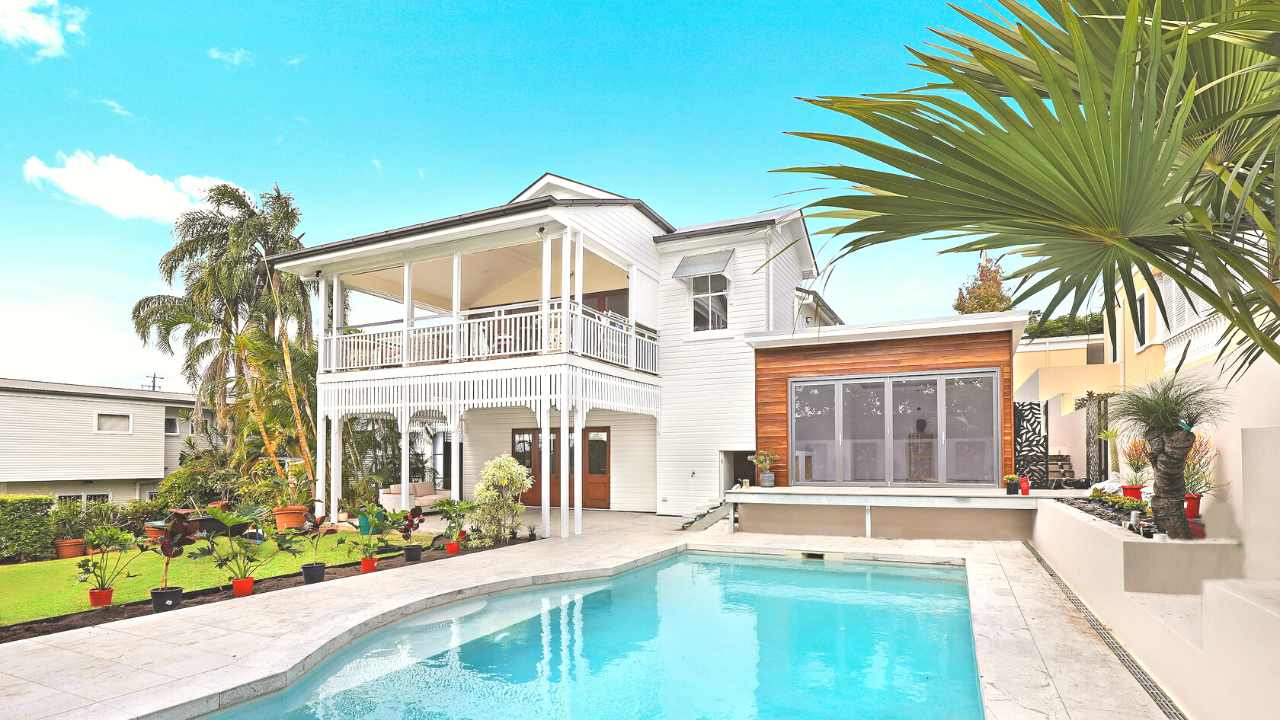
100 points of identification list
First things first: when applying for a property in Australia, proof of your identity is required. Each piece of identification is allocated a certain number of points, and you need to provide at least 100 points of identification to secure a rental. Of course, other things go into whether your application to rent a property in Australia is accepted or not, but the 100 points of identification for renting is the first place to begin as, without this, you can’t apply for a rental property in Australia.
Real estate agents will share their list of 100 points of ID with you as it can vary a little. If you’re just moving to Australia, there will be plenty of ID on the list that you probably can’t provide (an Australian birth certificate, an Australian passport etc.). There are still plenty of forms of ID you CAN use to make up your 100 points of ID for your rental though.
Get your new life in Australia set up as quickly as possible so you can gather as many forms of identification as possible. This means getting your Australian driving license organised, setting up your bank account and getting your first bank statement, and applying for your Medicare card. You will easily be able to gather more than enough ID but the trick is to prioritise getting those admin tasks out of the way as early as possible so you’ve got time to get it sorted ahead of looking into rental properties.
Make your rental application stand out
Your rental application form is a way of showing the landlord and real estate agent that you’re the best candidate for the property. They want to see that you will pay rent on time and take good care of the property.
Think about what sells YOU. What unique qualities do you bring to the table that makes you the perfect tenant for this rental property? Brainstorm a list of everything you can offer, and why you’d take such great care of the property. You need to make your argument compelling so you clearly show you’re the best person for the property.
It’s a bit like applying for a job – you need to show you’re an outstanding candidate through your rental resume! What evidence can you provide to back up anything that you’re saying?
Things to consider for your rental application
- Have you owned your own home for a certain number of years before relocating to Australia?
- Have you successfully rented in other countries?
- Have you held a long-term rental for a number of years (i.e. can you show you haven’t moved from house to house every couple of months)?
- Do you have a secure job lined up?
- Have you started your job yet?
- Do you have savings?
- Do you have references from previous landlords or employers (in any country), or from anyone in a professional or personal capacity (ideally in Australia)?
- What personal references will benefit and strengthen your application?
- If you’ve sold your home in your country of origin, can you obtain a reference from your estate agent there?
- If you have started a job, can you provide pay slips as proof?
- What can you share about your history in terms of rentals/home ownership?
- How can you show that you’re trustworthy?
- How will your situation suit the property and what the landlord is looking for?
- What kind of lifestyle do you lead – do you work full time and like quiet nights in?
- How can you show you’re responsible and will take care of the house?
This will all help you build up a compelling rental application.
There may be things that aren’t perfect about your situation. Perhaps you don’t yet have a job lined up or the job you have is only for a short-term contract. If you can prove you have savings to cover 6 or 12 months of rent this takes away some of the risk for the agent. This is where relocating puts you at an advantage as you may be moving with the proceeds of your house sale and showing proof of that cash can really help your rental application. If you’re in a short contract, you could also get a letter from your employer that provides some clarity around the future (i.e. they plan for the role to be ongoing etc.)
Perhaps you have pets? Can any of your references comment on the fact your pets are well-behaved and well-cared for? How can you present your pet in the best possible light? Do you have a small dog that doesn’t shed fur and is well-behaved? Maybe you take your dog on two long walks a day so they’re well-exercised and not trapped in a yard all day where they might bark. Maybe you work from home so your pets won’t be unattended during the daytime. What aspects of your pet (or your lifestyle with your pets) can you highlight to show the landlord and agent that your pet won’t cause them any problems with damage or noise.
Write a compelling cover letter
Don’t skimp on this step. When you’ve gathered all of the above, put together a solid cover letter. Spend time on this. Get others to proofread and edit it. And keep working on it until you’ve nailed the most compelling page you can. Sell your benefits and why you’re a great fit for this property (and why it’s a great fit for you!) It might be helpful to put a few key items in bullet points so they stand out.
Prepare your references
Have your references lined up ready and make sure you’ve got a range of options from various backgrounds (work, home, professional, personal).
It’s helpful if some of your references can be Australian references, but I know this can be challenging when you’ve just moved and don’t know anybody.
When we arrived, we were able to ask the owners of our temporary rental if they could provide us with a reference (we spent time with them as they lived in the house next door). We also asked the kids’ new kindy if we could add them as a reference (this showed we were paying bills on time), and we were lucky to have some Australian friends who could provide us with personal references. I think having some Australian references really helps an application, so do what you can to find some – the more references the better as it helps build a solid picture of how reliable you are.
Prepare your finances
Know your budget, and be prepared for future increases so don’t overstretch yourself (given that mortgage rates in Australia right now have been going up and up, so have rents, unfortunately). Make sure you have your first month’s rent set aside along with the rental bond. You want to be ready to move if you get the go-ahead.
What is a rental bond (sometimes known as a tenancy bond)?
When you secure a place to rent in Australia, you will usually be asked to pay a rental bond, in addition to some rent in advance. A rental bond is money that is paid out in advance as security. Think of it like a security deposit for rent. If you were to damage the property, your rental bond may be with held when the time comes to leave the property.
For this reason, it’s essential that you carefully review a property before you move in and document any damage you see (paint chips, broken things, dents in the wall – anything at all that could cause you issues for getting your rental bond refund later). All of this must be documented before you move in and logged with your real estate agent so there is a detailed record of it.
Every state and territory has different rules about how rental bonds are treated for renting in Aus. For instance, in Queensland, the Residential Tenancies Authority (RTA) holds on to the bond money until you move out.
How rent is paid in Australia?
Rental rates are listed on the rental sites as a cost per week in Australia. I found that strange when coming from the UK where everything was done monthly but, in Australia, it’s common to be paid weekly or fortnightly so paying your rent weekly can actually work well with your budgeting. You may also be able to pay fortnightly or monthly if you prefer, so speak to your agent about setting up the payments when the time comes.
Different rentals will likely accept payments in different ways. When we rented our first home in Australia, we paid through a system called Rentmate via our online bank on a weekly basis. Your real estate agent will inform you how to pay and what payment options are available to you.
You may not have heard the term ‘BPAY’ yet (I know the first time I heard it was when we were organising our rental). BPAY is a way to pay your bills in Australia. You’re given a biller code and reference number and in your online banking you go to pay a bill and select BPAY and then input these details to make the payment. So if your real estate agent says you need to pay the rent via BPAY, it’s just a way for you to pay your bills online (and you’ll quickly get used to it as your utilities, car registration and pretty much any bill will come with a BPAY option. I just remember the first time I heard the word, I had no idea what it meant so I thought I’d explain!
Tips for securing a rental in Australia: Be flexible
When you first move to Australia, you have no credit history in Australia, and you’re likely to be up against applicants who do have an Australian history, who have a secure job, and who can provide Australian real estate references and other Australian references. It can feel like an uphill struggle to rent a home in Australia. If demand is extremely high in your area, or in your budget bracket, there are a few things you could do to improve your chances of securing a rental.
1) Consider increasing your budget (although don’t stretch yourself too far)
When we arrived, we found that the lower rate rent brackets had a lot more competition for rentals, and the competition got less where rents were a little higher (sometimes even only $20 – 40 a week more). Jumping up a price bracket might make it easier to secure a rental. However, please note that agents are looking at affordability. They don’t want to rent a house to somebody who is stretching themselves to afford the price.
2) Consider paying rent in advance (or at least showing you have that $$$$$ in a savings account)
If you’ve got cash from your house sale, it could be worth offering to pay a few months in advance. As a new arrival, this is something that can make your application desirable. However, not all agents will consider this. At the very least, show the agent you have the amount to cover a few months of rent in a savings account so they can see you can afford it.
3) Consider asking for a longer lease
Landlords want people to be in their home long term as it saves them having to relist it and go through the hassle of choosing tenants again.
If you ask for a long lease (i.e. 12 months) then it can help your case. It’s still possible to break the lease later if you decide to buy. We broke the lease on our 12-month rental as we decided to buy after six months. The agent readvertised it and a new tenant was found to take over to lease so we didn’t end up liable for any additional costs. In this current market, in a lot of areas it wouldn’t be difficult to find someone to take over if you wanted to break-lease.
4) Consider how important all of the features are to you
It can sometimes be difficult finding a rental that ticks every one of your boxes. Work out the importance of the features you want and where you’re willing to be flexible in order to get your foot in the door in the Australian property rental market.
You don’t have to stay in your first rental forever – just long enough to get settled and find your feet and then you can work out where you might want to settle in the longer term. When it comes to buying your own home later, it’s more important to tick all of those boxes (or as many as you can) but for this first rental in Australia, you might need to scale back your plans a little just to get started.
5) Consider moving your search area a little further out
Rentals closer to the city will likely be more competitive than those a little further out.
Remember, this is a starter home for you, so consider how important it is to be on the doorstep of the city, or whether travelling an extra 15 minutes to work might make rental costs cheaper and make it easier to secure a rental. You don’t want to totally lose access to the lifestyle you’re dreaming of, but you also need to be realistic. You may only be in this house for six – 12 months because once you get here and settle in you might want to move area of buy a home anyway.
6) Consider using a relocation agent to secure a rental ahead of time
Securing a rental before you move to Australia can take a lot of stress off your shoulders. A relocation agent will be able to assess your needs and hopefully secure you a lease before you even arrive in Australia. The downside of this is that you’re not able to explore the local area and decide where you want to live for yourself, but it can be very cost-effective (as short-term rentals are expensive!)
Rent a home in Australia: Get to know the local real estate agents
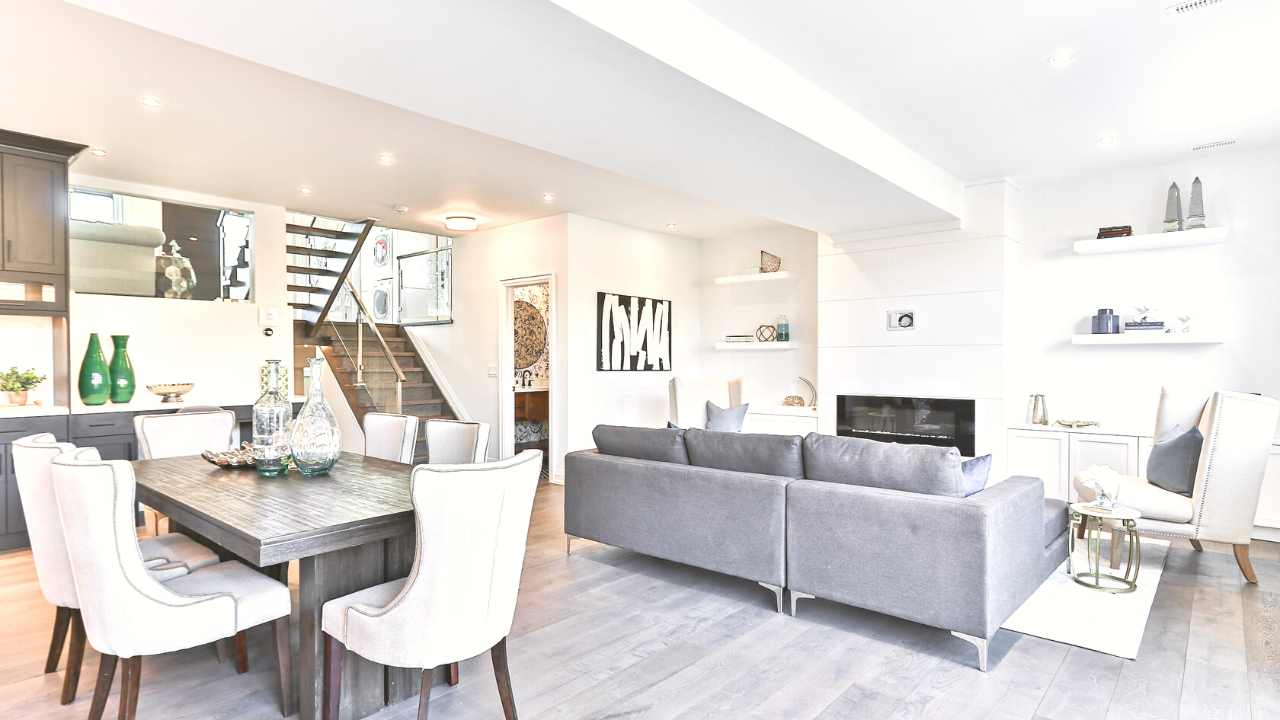
Make friends with your real estate agents! They’re your gateway to the rental properties that you want.
Go along to lots of open homes and make time to stop and chat. Pop into the real estate branches and talk to the agents. Do what you can to show how keen you are and build a relationship. Let them know exactly what sort of property you’re looking to rent. Get on their email list and text list to hear about things as soon as they’re on the market. Show up when you say you will and be presentable as you want to leave a good impression on them.
They want to know that their tenants will take care of the property, so their opinion of you can make a difference.
I’ve even heard of people showing up to open homes with a fresh takeaway coffee or cake for the agent as a way of getting them on side. You want to be the person they remember, so smile and be nice!
Rent a home in Australia
While it can feel stressful organising your first home in Australia, I think you’re better off just finding something to get started. Time will fly and, when you get settled, you might find you want to move to a different suburb anyway. Once you’re here, you’ll have a job, a credit history and people you can use as references so it becomes easier to move later if you decide you want to move again. This first rental home might just be a stepping stone for you as you begin looking for your first home to buy in Australia, too.
I hope this post about how to rent a home in Australia Australia has been useful for you! Best of luck securing your new home!

